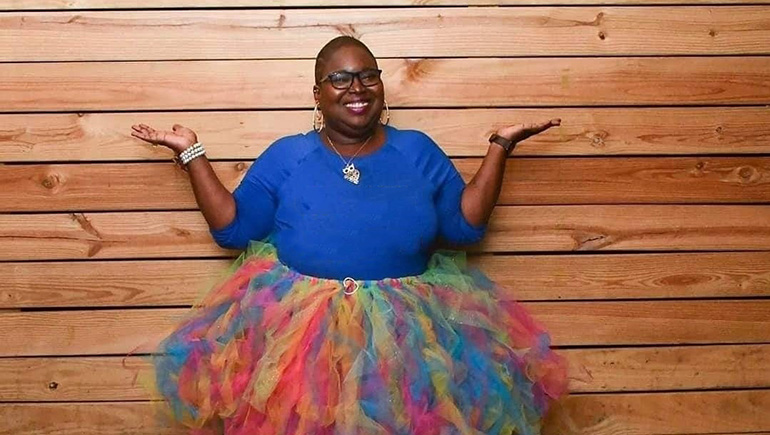On Valentine’s Day in 2019, after a consultation with her doctor, a mammogram and an ultrasound, the diagnosis was made official, and Atiba fell apart.
“I spent 10 days in bed just crying,” Atiba said. “Those were the loneliest 10 days of my life.”
It was a pep talk with her brother, Ronald, that helped Atiba throw off the covers and rise up. “He said to me, ‘If you want this to be the end, then it will be the end. But if you don’t, this is the time you fight,’” she said. “From that moment on, I never looked back.”
A life-changing and devastating decision nearly steered her off course early on. Before she began treatment, her doctors encouraged her to freeze her eggs, in the event she would one day want to have children, which she most certainly did. “But how could I have a child not knowing if mommy was going to die from this disease?” she said, tears streaming.
Atiba made the decision to close the door on motherhood.
She began her treatment plan at the Rutgers Cancer Institute, part of Robert Wood Johnson University Hospital. Treatment included six weeks of aggressive chemotherapy and multiple surgeries, as the cancer had metastasized to her lymph nodes and brain. A self-proclaimed “unicorn,” Atiba chose to navigate her cancer journey with a majestic grace and optimistic attitude. She’s got a smile like a time-lapse video of a flower blooming — one can’t help but smile back. “I’m a naturally happy person, so it was important for me to keep that going through all of this.”
It was during her treatment that Atiba transitioned from a contractor at Bristol Myers Squibb to a full-time employee as manager of Talent Acquisition and Diversity Recruitment. Being welcomed into the company family at a time when she was so ill was a game changer for Atiba, she said.






